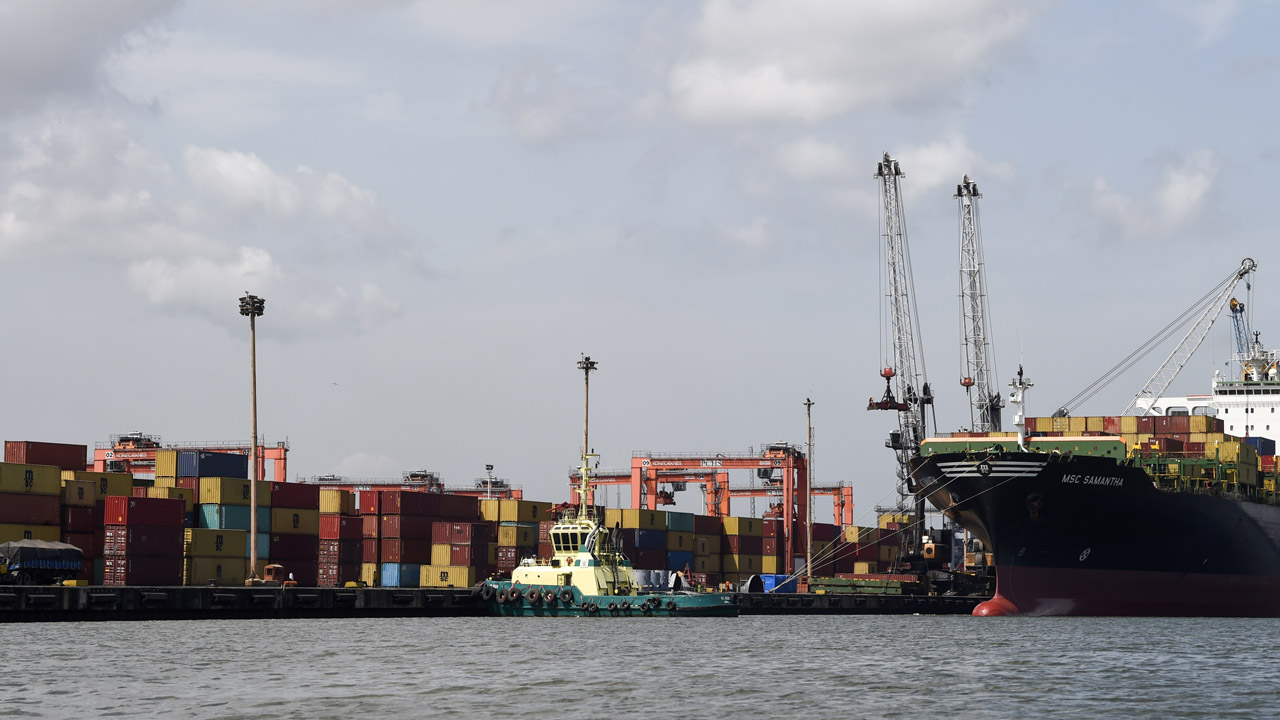
• Fault tax increase, claim all sectors bleeding seriously
The Nigerian Association of Chambers of Commerce, Industry, Mines and Agriculture (NACCIMA) and the Centre for the Promotion of Private Enterprise (CPPE) have lamented the deplorable state of the economy, stressing that virtually all the sectors are seriously struggling to remain afloat.
President of the Nigerian Association of Chambers of Commerce, Industry, Mines and Agriculture (NACCIMA), Ide John Udeagbala, said the situation has become worrisome and called on governments at all levels to, as a matter of urgency, work in synergy with relevant stakeholders in fashioning appropriate strategies to improve and stabilise the economy.
Speaking at the second quarter media briefing of the year on socio-economic issues in Lagos, he regretted that during their first quarter press briefing when they expressed grave concern over the harsh socio-economic conditions in the country and proffered solutions to government, nothing has changed since then.
Instead, he said, the situation has degenerated and there have been no steps taken by the authority to address the multiple issues raised.
Udeagbala, said despite the unresponsiveness from government, they would continue to address them until a conducive business environment is achieved for economic growth and inclusive development.
Calling on the Federal Government to urgently fix the country’s four refineries, which have remained in comatose for almost two decades to end petroleum products importation into the country, he said this would help generate employment opportunities for the youths.
“It will also address the impact of fuel subsidy removal without adding additional debt burden on the nation. Besides, our ability to provide some basic raw materials internally will help our industries compete better to benefit from the African Continental Free Trade Agreement (AfCFTA),” he said.
On his part, Director, Centre for the Promotion of Private Enterprise (CPPE), Dr. Muda Yusuf, said some tax and import duty provisions in the 2023 fiscal policy measures would significantly hurt the economy and worsen de-industrialisation worries in the economy. He said some of the measures could exacerbate inflationary pressures, which are detrimental to economic growth and manufacturing, construction and transportation sectors.
Yusuf pointed out that it is double trouble for economic players to contend with a regime of high import duty, prohibitive tax rates amid a depreciating currency.
Fiscal policy measures, he said, must seek to ensure a good balance between revenue generation, boosting domestic production, enhancing the welfare of citizens, promoting economic growth, deepening economic inclusion, facilitating job creation and recognising societal ethos, beliefs and values.
While excise duty seeks to raise tax on beverage, drinks, wines, fruit juice, energy drinks and spirits, Yusuf said the implications of this would be a drop in sales for investors in the sector, affect tax revenue, a loss of direct and indirect jobs, millions of farmers supplying local inputs like grains may lose their livelihoods, risk of decline in profitability and shareholder value and increased risks of smuggling.
Adding that the 40 per cent import duty on vehicles is difficult to justify, he said the cost of locally assembled vehicles are vastly beyond the reach of most Nigerians and the economy has experienced huge exchange rate depreciation which had already exacerbated vehicle acquisition cost in the first place.
He added that transport costs and vehicle smuggling would shoot up.
Lamenting about the 45 per cent import duty slammed on iron and steel products, he said it would only lead to an increase in cost of housing construction; increase risk of building collapse, encourage smuggling of iron and steel products and weaken the already struggling construction industry.
“With a 30 per cent Ad Valorem tax and a specific tax of N75/litre, most wine industries operating in the country may have to shut down. The immediate risk is that the domestic wine market would be taken over by imported and mostly smuggled wines. Tax on tobacco was also increased and the risk is that the cigarette market would be completely taken over by smuggled tobacco products, which are completely outside the radar of regulatory and revenue authorities.”
Regretting that Ease of Doing Business (EoDB) remains a mirage despite several promises from this present administration, Udeagbala said multiple taxation and exchange rates, government policies somersaults, poor infrastructure, high cost of power among other factors, continue to impede business opportunities and scare away investors. “NACCIMA as the voice of the Organised Private Sector in Nigeria (OPSN) calls on the government to consider these impending factors affecting EoDB and implement the various solutions we have suggested in the past for lasting solutions to these myriads of challenges.
Collaboration with the OPSN and implementations of suggested solutions to these challenges will help ginger the economy back to inclusive growth and development.”
Calling for the decentralisation of power, he said the recent constitutional amendment on power generation which allows state governments create laws for the generation, transmission and distribution of electricity to areas not covered by the national grid system in states, has paved way for the transformation of the power sector in Nigeria. Adding that over 85 million people in Nigeria have no access to the national grid, making Nigeria the largest energy access deficit in the world, he said poor power supply and high-energy costs is killing businesses and innovation.
NACCIMA urged the government that when the planned census does hold, it should be an opportunity to widen the tax base of the population in the country instead of increasing tax rates and multiplying taxes on the already overtaxed few individuals and OPSN companies.
“OPSN is worried about the several issues, which has remained as constraints to the growth of the sector, including poor infrastructure, weak regulatory framework and institutions, lack of oversight, lack of best practices and lack of data. The rising wave of cybercrime globally and its attendant negative consequences has continued to call for the attention of well-meaning Nigerians to help curb cybercrime. As technology continues to advance, novel methods are used to perpetrate cyber related crimes and Nigeria is not immune to these attacks.”



